Mac Pro, iMac & Qualcomm: What to expect from Apple in the start of 2019
It's the start of a brand new year, and as usual there is a lot happening in the first half of 2019, for both Apple itself and for connected companies in the rest of the technology sphere. AppleInsider details some of the things you should expect to hear more about in the next few months.
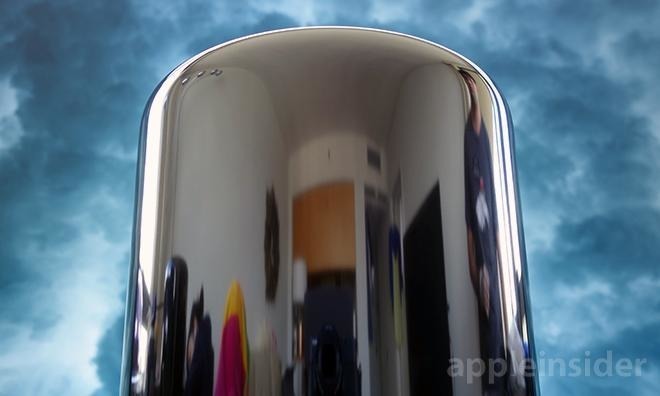
A new model of Mac Pro is potentially arriving in 2019
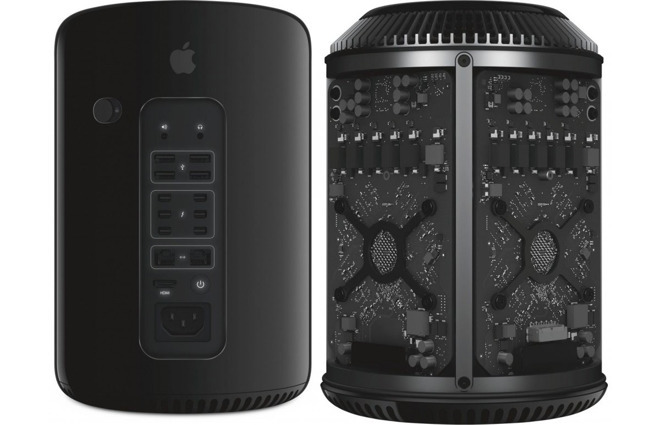
The new Mac Pro is expected to be more modular than the current version
At the time of the update, Apple revealed it was "completely rethinking the Mac Pro," with mentions of a new modular design that could be more open to upgrades than the existing cylindrical model. A new "pro display" was also promised, to accompany what Apple marketing chief Phil Schiller advised would be Apple's "highest-end, high-throughput desktop system, designed for our demanding pro customers."
We'd like Apple to ship the Mac Pro early in 2019, but we're concerned that it will be a very-late 2019 deployment, similar to how the cylindrical Mac Pro rolled out.
The long development time may also have helped the case for a high-performance system, such as the introduction of a 28-core, 56-thread Intel Xeon processor that is a great candidate for inclusion in the Mac Pro.
A related item that could also see some changes is the iMac range, as while Apple released new models in 2017, there weren't any notable additions made in 2018. The October event, which was tipped to include some Mac-related changes, focused on a new Mac mini as well as a new MacBook Air design, leaving the iMac alone.
An updated iMac lineup, or a refreshed iMac Pro, could easily be introduced alongside the Mac Pro, with the former offered as a more value-conscious option for consumers alongside the high-priced professional models.
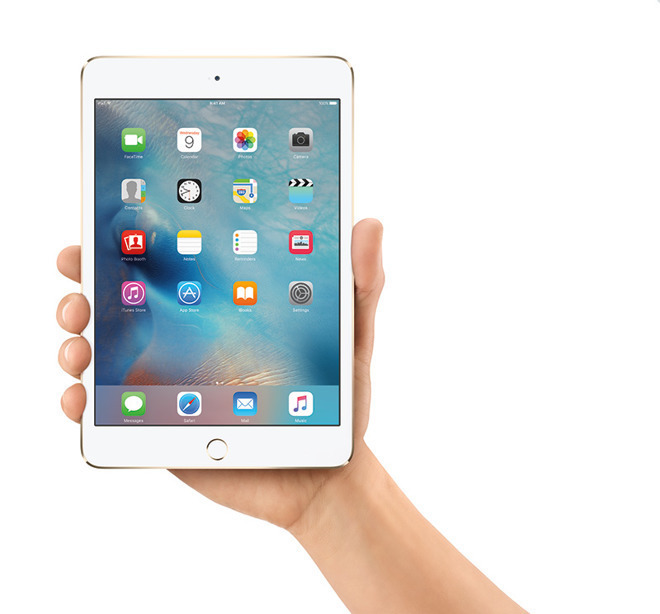
One Chinese report suggests a fifth-generation iPad mini could be on the way.
As for what such an iPad event could introduce, the obvious thing would be for Apple to make changes similar to the ones seen in the iPad Pro refresh late last year. Thinner bezels, compatibility with the second-generation Apple Pencil, and Face ID are all items that could feasibly be incorporated into the company's standard consumer tablet.
It may not be the only tablet that could be on the way. Rumblings from Chinese reports in December suggested a fifth-generation model of the iPad mini were in development, potentially making it the newest update to the depreciated pint-sized tablet range in over three years.
While the former is likely simply through anticipating an annual update, the latter is less likely, as there have been few other reports about the device, suggesting the ones that did surface may be speculating too much.
If Apple is going to produce a new iPad mini, details are likely to leak about it over the next few months leading up to its potential release later this quarter.
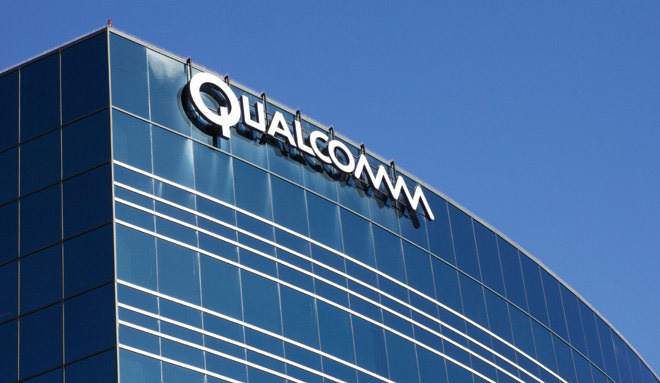
The Apple vs Qualcomm legal battle could be quite costly to the loser
While a company as large as Apple expects to end up heading to court for various reasons, one of its biggest battles of recent years will be taking place in April.
Apple and Qualcomm have argued since 2017 over royalties and patent licensing, with the former claiming the latter withheld $1 billion in patent license rebates and abused its market position. Qualcomm instead claims Apple is trying to pay less than the fair market value for standard-essential payments, breach of contract, and alleges the theft of trade secrets provided to chip rival Intel, among other issues.
The legal fight has already seen some decisions go Qualcomm's way, including a sales ban in China for some iPhone models, while a German court ruled Apple is violating a Qualcomm patent, potentially paving the way for a Germany-wide ban.
With the addition of a group of Apple assemblers also seeking $9 billion from Qualcomm in damages in a connected lawsuit, the battle between the iPhone producer and the chip company is becoming one that neither side wants to lose.
Qualcomm has seemingly suggested that it and Apple are trying to reach a settlement before the potentially expensive courtroom appearance, while Apple has repeatedly insisted no such talks have taken place, and is ultimately preparing itself for a long and protracted battle.
When it happens, AppleInsider will be covering the court activities, as well as all of the inevitable fallout afterward.

The US Senate could make major changes to privacy laws
Another thing that won't be going away anytime soon is the constant battle between technology companies and governments regarding privacy and security. While security agencies like the FBI want access to data, such as by weakening encryption, Apple and other firms have fought to prevent any backdoors or other similar elements from being introduced.
In the wake of major consumer data breaches and Facebook's Cambridge Analytica scandal, consumer data privacy has become more of an issue than ever before, and lawmakers have taken notice.
In November, a subcommittee of the Senate Commerce, Science, and Transportation Committee revealed it was working on a potential bill that could allow the Federal trade Commission the ability to enforce and produce regulations that telecommunications firms have to abide by, relating to the personal data of consumers.
While the wording of the bill has not been officially confirmed, it is anticipated that a bipartisan draft could be finished "early in the session" this year. We're not sure exactly how the current shutdown will affect things going forward, but we'd be surprised if there wasn't big movement by June.
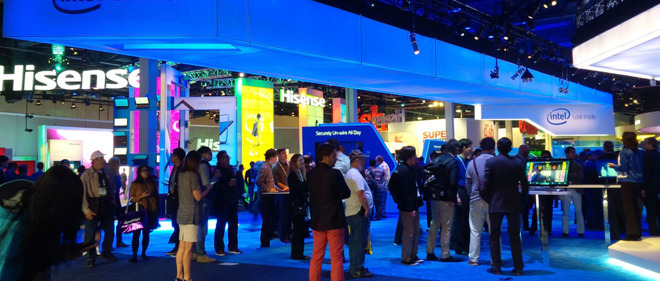
CES is packed with companies keen to show their new products.
Sure, it's a major event that's worth noticing, but in a world where companies hold their own flashy product launches, some may think it isn't that relevant anymore.
While Apple does not typically make an appearance at CES, the vast majority of hardware companies that work within the Apple ecosystem are likely to be in attendance, complete with a plethora of devices, accessories, and other items.
As usual, AppleInsider will be at the show, and will report on the announcements made on the show relating to the iPhone, iPad, Mac, home automation with HomeKit, and Apple's other products and services.
Hopefully this year there won't be a blackout on the show floor.

A new model of Mac Pro is potentially arriving in 2019
Mac Pro and iMac
Apple hasn't updated the Mac Pro for a considerable amount of time, with the only real change to the product line being an update to the 2013 model in 2017 that added a six-core Xeon configuration and dual AMD G500 GPUs. A change is well overdue.
The new Mac Pro is expected to be more modular than the current version
At the time of the update, Apple revealed it was "completely rethinking the Mac Pro," with mentions of a new modular design that could be more open to upgrades than the existing cylindrical model. A new "pro display" was also promised, to accompany what Apple marketing chief Phil Schiller advised would be Apple's "highest-end, high-throughput desktop system, designed for our demanding pro customers."
We'd like Apple to ship the Mac Pro early in 2019, but we're concerned that it will be a very-late 2019 deployment, similar to how the cylindrical Mac Pro rolled out.
The long development time may also have helped the case for a high-performance system, such as the introduction of a 28-core, 56-thread Intel Xeon processor that is a great candidate for inclusion in the Mac Pro.
A related item that could also see some changes is the iMac range, as while Apple released new models in 2017, there weren't any notable additions made in 2018. The October event, which was tipped to include some Mac-related changes, focused on a new Mac mini as well as a new MacBook Air design, leaving the iMac alone.
An updated iMac lineup, or a refreshed iMac Pro, could easily be introduced alongside the Mac Pro, with the former offered as a more value-conscious option for consumers alongside the high-priced professional models.
iPads
The first couple of months are also a prime time for Apple to issue new versions of its iPad lineup. Considering Apple revealed an updated 9.7-inch model in March, it is plausible an annual refresh could take place at around the same time.
One Chinese report suggests a fifth-generation iPad mini could be on the way.
As for what such an iPad event could introduce, the obvious thing would be for Apple to make changes similar to the ones seen in the iPad Pro refresh late last year. Thinner bezels, compatibility with the second-generation Apple Pencil, and Face ID are all items that could feasibly be incorporated into the company's standard consumer tablet.
It may not be the only tablet that could be on the way. Rumblings from Chinese reports in December suggested a fifth-generation model of the iPad mini were in development, potentially making it the newest update to the depreciated pint-sized tablet range in over three years.
While the former is likely simply through anticipating an annual update, the latter is less likely, as there have been few other reports about the device, suggesting the ones that did surface may be speculating too much.
If Apple is going to produce a new iPad mini, details are likely to leak about it over the next few months leading up to its potential release later this quarter.
In Court with Qualcomm

The Apple vs Qualcomm legal battle could be quite costly to the loser
While a company as large as Apple expects to end up heading to court for various reasons, one of its biggest battles of recent years will be taking place in April.
Apple and Qualcomm have argued since 2017 over royalties and patent licensing, with the former claiming the latter withheld $1 billion in patent license rebates and abused its market position. Qualcomm instead claims Apple is trying to pay less than the fair market value for standard-essential payments, breach of contract, and alleges the theft of trade secrets provided to chip rival Intel, among other issues.
The legal fight has already seen some decisions go Qualcomm's way, including a sales ban in China for some iPhone models, while a German court ruled Apple is violating a Qualcomm patent, potentially paving the way for a Germany-wide ban.
With the addition of a group of Apple assemblers also seeking $9 billion from Qualcomm in damages in a connected lawsuit, the battle between the iPhone producer and the chip company is becoming one that neither side wants to lose.
Qualcomm has seemingly suggested that it and Apple are trying to reach a settlement before the potentially expensive courtroom appearance, while Apple has repeatedly insisted no such talks have taken place, and is ultimately preparing itself for a long and protracted battle.
When it happens, AppleInsider will be covering the court activities, as well as all of the inevitable fallout afterward.
Privacy or No Privacy

The US Senate could make major changes to privacy laws
Another thing that won't be going away anytime soon is the constant battle between technology companies and governments regarding privacy and security. While security agencies like the FBI want access to data, such as by weakening encryption, Apple and other firms have fought to prevent any backdoors or other similar elements from being introduced.
In the wake of major consumer data breaches and Facebook's Cambridge Analytica scandal, consumer data privacy has become more of an issue than ever before, and lawmakers have taken notice.
In November, a subcommittee of the Senate Commerce, Science, and Transportation Committee revealed it was working on a potential bill that could allow the Federal trade Commission the ability to enforce and produce regulations that telecommunications firms have to abide by, relating to the personal data of consumers.
While the wording of the bill has not been officially confirmed, it is anticipated that a bipartisan draft could be finished "early in the session" this year. We're not sure exactly how the current shutdown will affect things going forward, but we'd be surprised if there wasn't big movement by June.
The More Immediate Future: CES
The first major technology tradeshow of the year is due to take place in a few days time. The Consumer Electronics Show is known as a venue for product launches from almost everyone in the technology industry, keen to show their wares and latest innovations that may or may not reach consumer hands later in the year.
CES is packed with companies keen to show their new products.
Sure, it's a major event that's worth noticing, but in a world where companies hold their own flashy product launches, some may think it isn't that relevant anymore.
While Apple does not typically make an appearance at CES, the vast majority of hardware companies that work within the Apple ecosystem are likely to be in attendance, complete with a plethora of devices, accessories, and other items.
As usual, AppleInsider will be at the show, and will report on the announcements made on the show relating to the iPhone, iPad, Mac, home automation with HomeKit, and Apple's other products and services.
Hopefully this year there won't be a blackout on the show floor.

Comments
and an iMac update can’t come soon enough.
Will by curious to see how Apple segments the iMac and iMac Pro with the existence of 8 core i7/i9 CPUs versus the Xeon W in the current iMac Pro. They’ll have to get rid of the 8 core model in the iMac Pro, or even theoretically, get rid of the iMac Pro brand once the Mac Pro comes out.
I suspect they will keep the iMac Pro as a separate marque to the iMac, at least in the short term. The success of the iMac Pro might make them reluctant to remove it from the lineup until they've seen how the newer Mac Pro goes, and even then they might stick with it.
Why not update whenever Intel releases a new CPU? The extra R&D would be minimal, and people wouldn’t feel like they are being ripped off if the only choice of iMac has previous gen hardware. It just annoys people.
Maybe because that new CPU doesn't work in the Mac you think it will? Just because there's a new CPU out, doesn't mean it works. Also, sometimes there's very little to gain, especially for a normal consumer which is the bulk of Apple's sales with the Mac.
People also feel like they're ripped off when they buy a new Mac and its updated shortly afterwards...which would happen more often than not if Apple were to constantly update their Macs.
In other words... Schiller talked to Pixar.
Schiller: Here is your $18,000 iMac.
Average Appleinsider fanboi: It really isn't expensive at all, it's what pro's want.
Average Pro User: Hmmm... which Dell will I buy...
If there aren’t, it’s time to start some—I just bought my first pair...
😂
I’m looking for in-ear headphones with noise pass through, in-ear headphones with noise isolation, and around the ear headphones. 3 pairs. Mobile ones for work where I can hear my surroundings, mobile ones where I can isolate outside sound (airplane, restaurants, walking around), and a nice pair with big sound. The tin cans are rumored, a 2nd gen AirPods are rumored, but no in-ear pairs just yet.
Take it from someone who used to work in both Apple and non-Apple retail: the number of people who have any understanding whatsoever of what is inside their machine or what “gen” it is (or its name ... or what it does) is nearly exactly the same as the number of people who can identify, name, and replace all the parts in their car.
Power nerds who actually know specs are a *very* slim portion (well under five percent, closer to two percent IME) of even the PC world, and even less so among Apple buyers. What they actually want is a machine that they perceive (rightly or wrongly) will perform adequately well for their needs, full stop. Apple stuff does that, is well-supported for years, and doesn’t require you to buy a new machine every time Intel finally squeezes out an actual new chip. Consumers like that — the vast majority of PC users would happily go back to Windows 95 or XP if they could, limitations and security nightmares be damned.
Pop out of your bubble for a while and go hang out at a mainstream computer retailer or Apple Store for a long weekend. Eavesdrop on the questions people actually as while shopping for new machines. I’ve done that, I’ve worked those stores, and I still eavesdrop when I’m shopping in such places to help keep my mind open to what is important to the mainstream of Apple, Windows, and Android buyers.
Literally yesterday, I watched a woman (who told the clerk she almost exclusively works in Office and Google apps, and puts everything either on an external hard drive or Google Drive) buy an outdated and underpowered dual i5-based refurb Asus machine with very little RAM or storage (4GB, 64G SSD) primarily because a) it will perform just fine for the next few years given her needs and b) she liked the colour of the case (a nice cobalt blue).
You and I and everyone else reading this is likely cringing, but even though she literally could have saved $150 by buying a basic IPad and a BT keyboard, I can’t argue that — based on what she said she does — she picked all that poorly. I see people buy Android tablets all the time even though they ship with Lollipop (that’s four major versions back), will never receive any major updates, and will — guaranteed — be obsolete and in a drawer in two years. But it’s $200 versus a $330 basic iPad that will still be running the latest iOS and apps for the next four to five years.
People, by and large, do not understand value versus cost until they either become quite wise or quite old, and they are terrified of change, IME. Those of us who happen to have a talent or the time for acquiring expertise in computers generally reap the reward of getting the best deal and best machine (for their budget and chosen platform) nearly all the time, but what posters here seem to not understand is that we are a very tiny cult, like expert birdwatchers or skilled craftsmen — we’re nothing like the vast majority of people who buy technology.
She bought something that isn't going to drive her up the wall.
I’d love to see a new iPad mini — they are still popular with certain audiences, particularly women — and a lightly-updated MacBook (non-Pro) in the spring, along with updated iPads in October. Heck, I’d like it if Apple brought out a new SE for under $500. Despite rumours, I don’t think we’re getting new AirPods until late this year — and maybe the AirPower and wireless case will finally come out with them LOL.
Also, thanks for pointing out that the long development cycle for the iMac Pro and Mac Pro will actually benefit buyers by increasing the chance that Intel will finally come up with a new Xeon-class chip (along with new-standard GPUs) that will truly set a new bar for performance. It’s a point too many impatient people forget.
If Gruber’s birdies are correct, Apple felt that <5% improvements in processor performance year to year wasn’t meaningful enough for them to go through the effort. The effort is huge for what Apple does. The 2018 MBP and Mac mini may look identical on the outside to thsir predecessors, but inside they are entirely different. Completely different machines.
Mind that they likely had larger reasons or causes for the development of their Mac product lines
1. The MBP are basically updated on a 12 to 18 month basis
2. The iMacs are basically updated on a 12 to 18 month basis
3. The 2013 Mac Pro was just a fuckup and they couldn’t decide what to do for 4 years (mystifying)
4. The MB was a fuckup and they haven’t admitted it just yet, but it was actually updated yearly for 3 straight years until this year
5. The MBA and MBP13FN problems were casualties, corrections, buttresses of the MB fuckup
6. The Mac mini didn’t have a market by the early 2010s due to the market moving to laptops, and they didn’t know what to do for awhile
The iMac not being updated in 2018 is a mystery though. I was curious on how they were going to segment between the 6/8 core i7/i9 processor iMacs versus Xeon W iMac Pros, and Vega whatever versus for the Vega 56/64. Turns out they punted to 2019.
Hopefully the new Pro Computer group they formed for the iMac Pro comes out with something good for the MacPro. Its been a long time.
I would love to see three Pro Desktops
1. ImacPro.
2. CheeseGraterPro
3. TrashCanPro
Have a Redesign every 6 years and Process updates every two to 3 years in between.
New ImacPro Released in 2017 (Refefreshed in 2020), CheesGraterPro (lots of room for internal storage and Memory) released in 2019 refresed in 2022, and TrashCanPro (or a MacMiniPro) Released in 2024 with Refreshes in 2027 with focus on external expansion using eGPU's off course)
If they are going to keep the iMac Pro brand name, I think they will want to defeature the iMac line a little, ie, not make as powerful relative to the top end iMac and base iMac Pro models seen now. The current iMac 27 with 4 core 7700K and Radeon Pro 580 is really not that far removed from the current iMac Pro base model. A Coffee Lake model will be equal if they ship with an 8 core version and something more performant than the Pro 580. Who’s going to buy an iMac Pro then? As far as I know, there is no where for the iMac Pro to go other than to more cores, and whatever the 7 nm Vega will be called. More core means an increasingly shrinking market for an AIO to sell into.
The Mac Pro will hopefully be a tower that can be rack mountable with rails so that it maximizes that market it can sell into.
I'd like them to just achieve minimum competence as a vendor of personal computers and update their Mac lineup annually. It hurts the brand to have products that go for so long without updates while the rest of the industry manages to upgrade more-or-less annually.